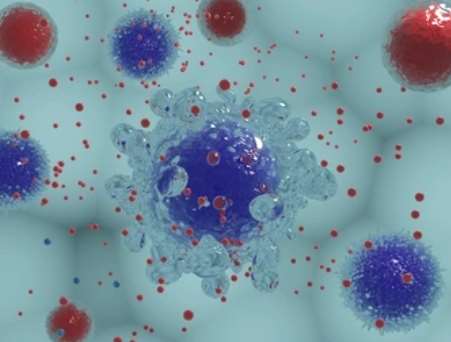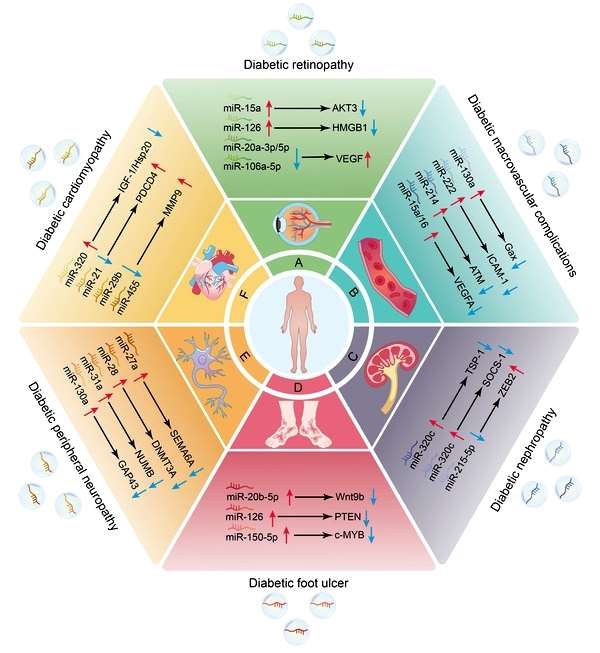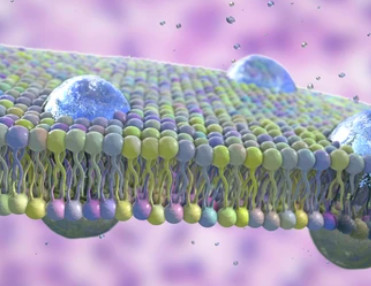The Association and Mechanisms of Exosomes and Metabolic Diseases
Online InquiryExosomes, small extracellular vesicles originating from various cell types, have emerged as essential mediators of intercellular communication. These nanosized vesicles are enriched in bioactive molecules, including proteins, nucleic acids, and lipids, capable of modulating recipient cell function. As researchers delve deeper into their functions, a growing body of evidence suggests a significant involvement of exosomes in metabolic diseases, such as obesity, diabetes, and metabolic syndrome.

The Association and Mechanisms of Exosomes and Metabolic Diseases
Intercellular Crosstalk and Dysregulation
Metabolic diseases, characterized by disruptions in energy homeostasis and nutrient processing, often stem from complex interplays between various tissues and cellular components. Exosomes have emerged as crucial players in this intricate web of intercellular crosstalk. These tiny vesicles facilitate the transfer of bioactive cargo, such as microRNAs and proteins, between cells, influencing key metabolic pathways.
Creative Proteomics' extensive research has shed light on the role of exosomes in mediating insulin resistance, a hallmark of diabetes mellitus type 2. Exosomes derived from adipocytes have been found to transport bioactive molecules that contribute to insulin resistance in target tissues, such as skeletal muscle and liver. This communication breakdown, orchestrated by exosomes, underscores their pivotal role in metabolic disease progression.
MicroRNA-Mediated Regulation
MicroRNAs (miRNAs), small non-coding RNAs, play a pivotal role in post-transcriptional gene regulation. Remarkably, exosomes have been identified as vehicles for the transfer of miRNAs, allowing for the coordinated regulation of gene expression across different cell types. Creative Proteomics' cutting-edge analyses have elucidated the significance of specific miRNAs carried by exosomes in the context of metabolic diseases.
For instance, exosomal miRNAs originating from dysfunctional adipocytes have been shown to target genes involved in glucose metabolism and insulin signaling pathways. By shuttling these miRNAs to distant cells, exosomes contribute to the propagation of metabolic dysfunction, setting the stage for disease development.
Learn more
Exosomes in Cellular Communication and Disease Treatment
Exosome Research Unveiling Novel Insights into Cancer, Neurological, and Metabolic Diseases
A Few Examples of Exosomes Affecting Metabolic Diseases
Obesity-Associated Exosomal Cargo
Obesity, a global health epidemic, is intricately linked to metabolic disturbances. Creative Proteomics' meticulous investigations have identified distinct exosomal cargo profiles in obesity-associated conditions. Exosomes derived from obese adipose tissue carry unique sets of proteins and miRNAs that influence adipocyte differentiation and lipid metabolism.
Furthermore, exosomes released from adipose tissue have been implicated in systemic inflammation, a hallmark of metabolic diseases. These exosomes harbor pro-inflammatory factors that contribute to insulin resistance and metabolic dysfunction in distant tissues, emphasizing their role in propagating the disease phenotype.
Diabetes-Driven Exosomal Communication
Diabetes, characterized by impaired glucose homeostasis, involves intricate interplay between insulin-producing pancreatic beta cells and insulin-responsive tissues. Exosomes released from beta cells have been shown to modulate recipient cell function by delivering bioactive molecules that influence insulin secretion and sensitivity. Conversely, exosomes from insulin-responsive tissues exert feedback effects on pancreatic beta cells, creating a bidirectional communication loop. Dysregulation of these exosomal pathways can contribute to diabetes pathogenesis, further underscoring the importance of exosome-mediated intercellular crosstalk.
 Molecular mechanisms by which exosomal miRNAs regulate the progression of DM‐associated complications (He X, et al,. 2021)
Molecular mechanisms by which exosomal miRNAs regulate the progression of DM‐associated complications (He X, et al,. 2021)
The Potential Role of Exosomes in Metabolic Diseases
Intercellular Communication and Metabolic Regulation
At the heart of the potential role of exosomes in metabolic diseases lies their capacity for intercellular communication. Creative Proteomics' meticulous investigations have illuminated how exosomes act as messengers, shuttling an array of cargo molecules, including microRNAs (miRNAs), proteins, and lipids, between cells and tissues. This dynamic communication network enables distant cells to exchange vital information, orchestrating complex metabolic processes.
Exosomal miRNAs, for instance, have been identified as potent regulators of gene expression, capable of fine-tuning metabolic pathways in recipient cells. In metabolic diseases, such as obesity and diabetes, Creative Proteomics has elucidated how specific exosomal miRNAs can influence insulin signaling, glucose metabolism, and lipid homeostasis. By modulating the expression of key genes, these miRNAs contribute to the dysregulation observed in metabolic disorders.
Systemic Inflammation and Immune Dysregulation
Metabolic diseases often coincide with chronic low-grade inflammation and immune system dysregulation. Creative Proteomics' extensive analyses have uncovered the role of exosomes in exacerbating these inflammatory processes, further exacerbating the metabolic dysfunction.
Exosomes derived from adipose tissue in obese individuals, for example, contain pro-inflammatory factors that contribute to a state of chronic inflammation. These exosomes can disseminate throughout the body, affecting distant tissues and promoting insulin resistance. Exosomal cargo can activate inflammatory pathways, providing a mechanistic link between metabolic dysfunction and immune system dysregulation in diseases such as metabolic syndrome.
Microbiota-Host Interaction and Metabolism
The gut microbiota plays a critical role in metabolic health, influencing nutrient absorption, energy expenditure, and inflammation. Creative Proteomics' insightful investigations have delved into the intricate interplay between exosomes and the gut microbiota, revealing their potential role in shaping metabolic outcomes.
Exosomes have been shown to facilitate bidirectional communication between the host and gut microbiota. Creative Proteomics' research highlights that these vesicles can carry microbial-derived molecules, such as short-chain fatty acids and bacterial metabolites, that impact host metabolism. Conversely, exosomes released from host cells can influence microbial composition and function in the gut. This dynamic crosstalk underscores the potential of exosomes in mediating microbiota-host interactions and, consequently, metabolic health.
Therapeutic Potential of Exosomal Cargo
Exosomes can serve as natural carriers for delivering therapeutic molecules precisely to the affected tissues, minimizing off-target effects.
Through innovative research, Creative Proteomics has explored the feasibility of engineering exosomes to carry specific cargo molecules, such as miRNA mimics or inhibitors. By capitalizing on exosomal trafficking pathways, these cargo-loaded exosomes hold promise for restoring metabolic balance and ameliorating disease-associated dysfunctions.
With advanced mass spectrometry instruments and a professional research team, we aim to provide you with high-quality exosome proteomics, exosome metabolomics and exosome lipidomics and other analytical services. Our services can greatly help exosome research and promote the application of exosomes in disease diagnosis and treatment.
Reference
- He X, Kuang G, Wu Y, Ou C. Emerging roles of exosomal miRNAs in diabetes mellitus. Clin Transl Med. 2021;11(6):e468.
Related Services
* For Research Use Only. Not for use in diagnostic procedures.







